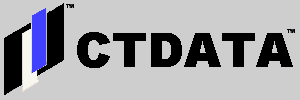Mossberg: Microsoft Had a Good Year... at Customer Expense
In his latest Personal Technology column in the Wall Street Journal, Walter Mossberg criticizes Microsoft for continuing to tie new features in its products to its own services in an exclusive manner. Many examples of this exist in Microsoft's new operating system, Windows XP. About this tying, Mossberg writes:
So what, some might ask? Isn't it common in a free market for companies to use one of their products to cross-promote another? Doesn't AOL use its online service to boost the movies made by its Warner Brothers studios? Doesn't The Wall Street Journal run ads and plugs for its sister publications and Web sites? The difference is that these other companies aren't court-certified monopolies, and when you're a monopoly, you have to follow different rules, as the appeals court said.
We agree, and would like to add that some Microsoft design decisions in Windows XP have already had profound, negative effects on the internal security of their customers' networks the eluded detection because some features of XP remain cloaked in secrecy. Read on for an example and a call for more transparency in Microsoft's business practices....
The best example is the security hole that Microsoft mistakenly left in the Universal Plug and Play Service. We wonder why security companies must place such stern warnings on the web sites about Microsoft product features: not only the original version which contained the vulnerability, but also the version that purportedly mitigates it? What other operating system services, buried deep in Windows XP for the supposed benefit of computer users everywhere, are vulnerabilities waiting to be exploited?
We don't know because Microsoft has not been forced by the U.S. Government to do business in the open. This has traditionally been the price companies have paid for being allowed to continue to operate a de facto monopoly. Microsoft should carry the same burden as AT&T and Standard Oil did in their respective haydays.
